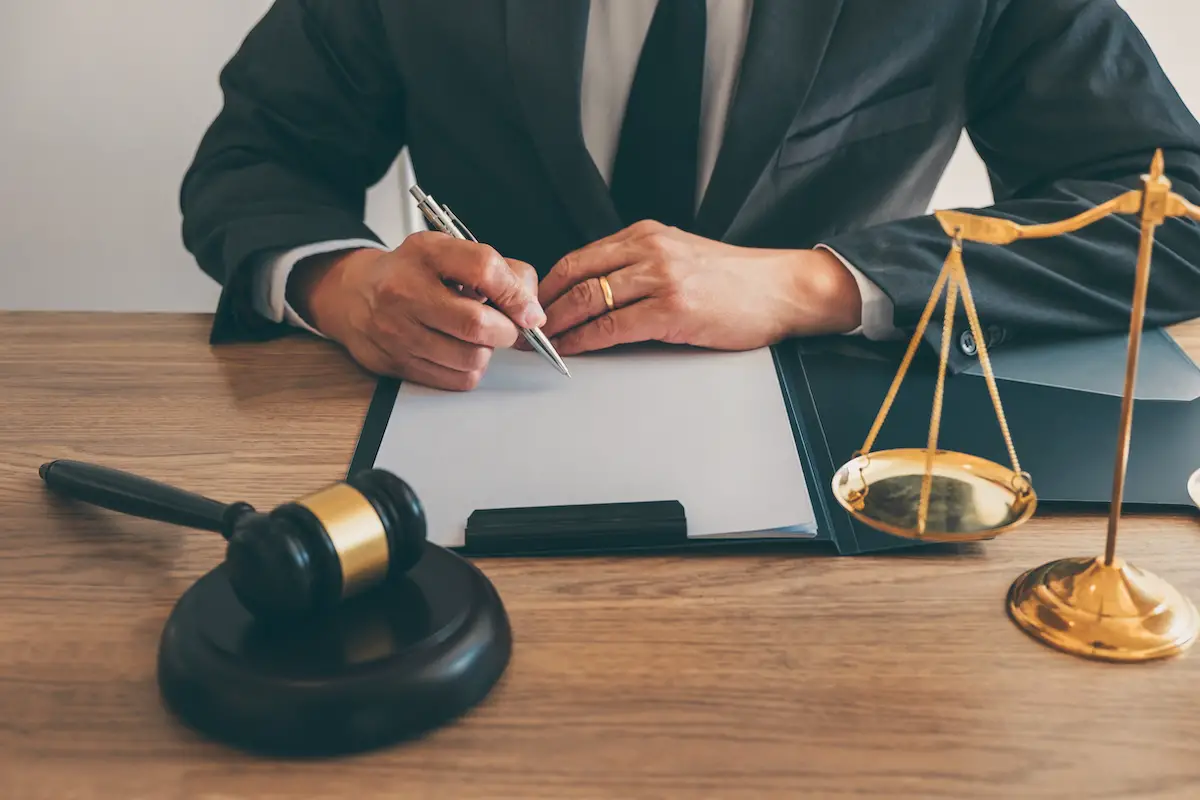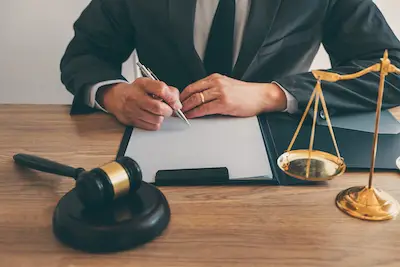
12 Jul The Use of Depositions in Settlement Negotiations: Leveraging Testimony for Resolutions
Settlement negotiations can be complex and challenging, requiring parties to gather evidence, present arguments, and reach a mutually agreeable resolution. One valuable tool in the process is the use of depositions. Depositions are sworn testimonies given by witnesses or parties to a lawsuit before trial. They serve as a means to gather evidence, assess the strengths and weaknesses of a case, and facilitate negotiations. In this article, we will explore the use of depositions in settlement negotiations and how leveraging testimony can lead to successful resolutions.
The Importance of Depositions in Settlement Negotiations
Depositions play a crucial role in settlement negotiations by providing parties with an opportunity to obtain sworn testimony from witnesses or parties involved in a legal dispute. This testimony can be used to assess the credibility of the witness, gather information, and identify potential weaknesses or strengths in a case. By leveraging deposition testimony, attorneys can strategically negotiate and advocate for their client’s interests.
Leveraging Testimony to Understand the Case
Using Depositions to Gather Information
Depositions offer a unique opportunity to gather information directly from witnesses or parties involved in a case. Attorneys can use this testimony to obtain facts, details, and insights that may not be readily available through other means. By asking targeted questions during a deposition, Tulsa lawyers can uncover crucial evidence, identify potential legal issues, and gain a deeper understanding of the case.
Assessing Witness Credibility
Credibility is a critical factor in any legal dispute. Depositions allow attorneys to assess the credibility of witnesses by observing their demeanor, body language, and consistency in their statements. By carefully analyzing deposition testimony, attorneys can identify inconsistencies, contradictions, or evasive answers, which can significantly impact the negotiation strategy.
Identifying Strengths and Weaknesses
Depositions provide an opportunity to assess the strengths and weaknesses of a case. By deposing witnesses, attorneys can gauge their level of confidence and knowledge about the relevant facts. This information allows attorneys to identify the strengths of their own case and the weaknesses of the opposing party’s arguments. Armed with this knowledge, seasoned attorneys can negotiate from a position of strength, leveraging the weaknesses they have discovered.
Strategies for Leveraging Depositions in Settlement Negotiations
Preparing Deposition Outlines
Before conducting a deposition, attorneys carefully prepare outlines that include key areas of inquiry and potential lines of questioning. These outlines ensure that no crucial information is overlooked during the deposition and help attorneys stay organized and focused. By asking well-crafted questions based on the deposition outline, attorneys can extract valuable testimony that can later be used to their advantage during settlement negotiations.
Highlighting Damaging Testimony
During a deposition, witnesses may make statements that are damaging to their own case or beneficial to the opposing party. Attorneys can leverage this testimony during settlement negotiations by emphasizing these damaging statements to the opposing party or their counsel. By highlighting the weaknesses in the opposing party’s case, attorneys can create a sense of urgency and encourage a more favorable settlement agreement.
Using Deposition Excerpts as Negotiation Tools
Deposition excerpts can serve as powerful negotiation tools. Experienced lawyers can present excerpts of deposition testimony that support their client’s position or undermine the opposing party’s arguments. These excerpts, when strategically selected and presented, can be persuasive and help sway the negotiation in their client’s favor.
Employing Expert Witnesses
Expert witnesses can provide specialized knowledge and insights that can significantly impact the outcome of settlement negotiation. Attorneys can use deposition testimony from expert witnesses to bolster their arguments, provide clarity on complex issues, and strengthen their client’s position. By leveraging the expertise and credibility of expert witnesses, attorneys can negotiate from a position of authority and trust.
Mistakes to Avoid When Leveraging Depositions in Settlement Negotiations
When leveraging depositions in settlement negotiations, it is important to avoid certain mistakes that could potentially undermine your position and hinder the negotiation process. Here are some common pitfalls to be mindful of:
Failing to Prepare Adequately
One of the biggest mistakes is not investing enough time and effort in thorough preparation. Failing to review the deposition transcript, identify key testimony, and formulate a clear strategy can significantly weaken your negotiation position. Take the time to thoroughly understand the deposition and its implications before entering into negotiations.
Overestimating the Impact of Deposition Testimony
While deposition testimony can be powerful, it is important not to solely rely on it as a magic bullet. Overestimating the impact of deposition testimony and neglecting other aspects of your case can lead to unrealistic expectations during negotiations. Remember that settlement negotiations involve a holistic evaluation of multiple factors.
Failing to Assess the Opposing Party’s Perspective
It is crucial to understand the opposing party’s interpretation and evaluation of the deposition testimony. Failing to consider their perspective can hinder effective communication and compromise during negotiations. Take the time to analyze their position and anticipate their arguments and responses to the deposition testimony.
Allowing Emotions to Cloud Judgment
Emotions can run high during settlement negotiations, but it is important to maintain a level-headed approach. Allowing emotions to cloud judgment can lead to impulsive decisions or hostile exchanges, which can hinder productive negotiations. Stay focused on the facts and the goal of reaching a favorable resolution.
Ignoring the Role of Other Evidence
While deposition testimony is valuable, it is essential to consider the broader spectrum of evidence in your case. Ignoring or downplaying other forms of evidence, such as documents, expert opinions, or witness statements, can weaken your negotiation position. Present a comprehensive and cohesive argument that incorporates all relevant evidence.
Failing to Anticipate Counterarguments
When leveraging deposition testimony, it is important to anticipate the opposing party’s counterarguments and objections. Failing to prepare for potential challenges can leave you vulnerable during negotiations. Take the time to identify potential weaknesses in the deposition testimony and develop persuasive responses to address them.
Lack of Flexibility
Negotiations often involve compromise and flexibility. Being rigid and refusing to consider alternatives can hinder the settlement process. While deposition testimony can provide leverage, it is essential to approach negotiations with an open mind and be willing to explore creative solutions that meet both party’s needs.
Poor Communication and Negotiation Skills
Effective communication and negotiation skills are critical during settlement discussions. Failing to actively listen, communicate clearly, and articulate your position can hinder the leveraging of deposition testimony. Invest in developing strong negotiation skills and consider seeking professional assistance if needed.
Failing to Assess Settlement Options
Overreliance on deposition testimony without considering the available settlement options can limit the potential for resolution. Assessing the strengths and weaknesses of your case, considering the costs and risks of litigation, and exploring alternative settlement options are all essential for successful negotiations.
By avoiding these mistakes, you can enhance your ability to leverage depositions in settlement negotiations successfully. Thorough preparation, strategic thinking, effective communication, and a comprehensive approach will contribute to a more favorable negotiation outcome.
Frequently Asked Questions
Q: What is the role of a deposition in settlement negotiations?
A: Depositions play a crucial role in settlement negotiations by providing parties with an opportunity to gather sworn testimony from witnesses or parties involved in a legal dispute. This testimony helps assess the credibility of witnesses, gather information, and identify strengths and weaknesses in a case, ultimately facilitating successful resolutions.
Q: How can leveraging deposition testimony benefit my settlement negotiation?
A: By leveraging deposition testimony, you can gather valuable information, assess witness credibility, and identify strengths and weaknesses in the case. This knowledge enables you to negotiate from a position of strength, using the weaknesses you have discovered to your advantage during settlement discussions.
Q: Can deposition excerpts be used as negotiation tools?
A: Yes, deposition excerpts can be powerful negotiation tools. By selecting and presenting excerpts of deposition testimony that support your position or undermine the opposing party’s arguments, you can strengthen your negotiation position and increase the likelihood of a favorable settlement agreement.
Q: What is the role of expert witnesses in settlement negotiations?
A: Expert witnesses bring specialized knowledge and insights to settlement negotiations. By leveraging deposition testimony from expert witnesses, you can enhance your arguments, provide clarity on complex issues, and establish authority and trust, thereby increasing your chances of reaching a favorable resolution.
Q: How should I prepare for a deposition in the context of settlement negotiations?
A: To prepare for a deposition, create a detailed outline that covers key areas of inquiry and potential lines of questioning. This ensures that you extract all relevant information during the deposition. Additionally, identify damaging testimony that can be highlighted during negotiations, and consider the strategic use of expert witnesses to strengthen your position.
Q: What if the other party refuses to participate in depositions?
A: If the other party refuses to participate in depositions, consult with your attorney to explore alternative strategies. There may be legal avenues available to compel their cooperation, such as court orders or sanctions.
Conclusion
The use of depositions in settlement negotiations is a powerful tool that can significantly impact the outcome of a legal dispute. By leveraging deposition testimony, parties can gather crucial information, assess credibility, and identify the strengths and weaknesses of a case. Employing effective strategies such as preparing deposition outlines, highlighting damaging testimony, using deposition excerpts as negotiation tools, and leveraging expert witnesses can greatly enhance the negotiation process. By harnessing the power of depositions, parties can increase their chances of reaching favorable resolutions.







